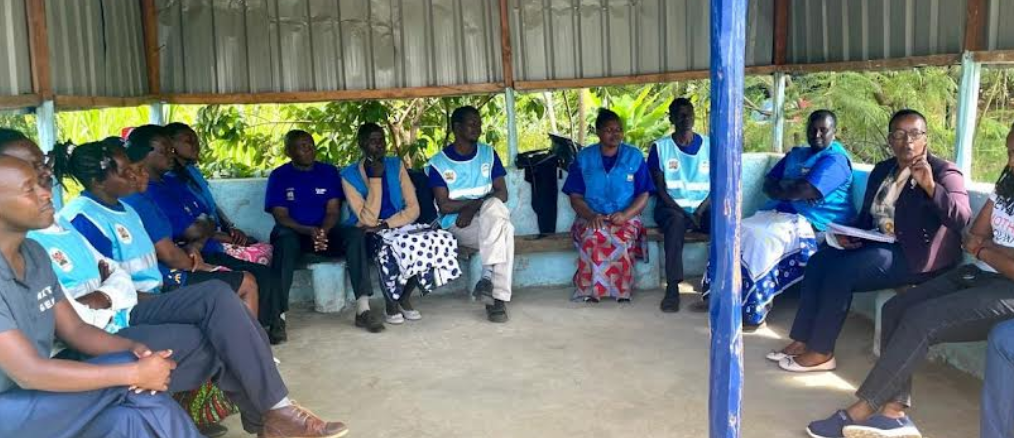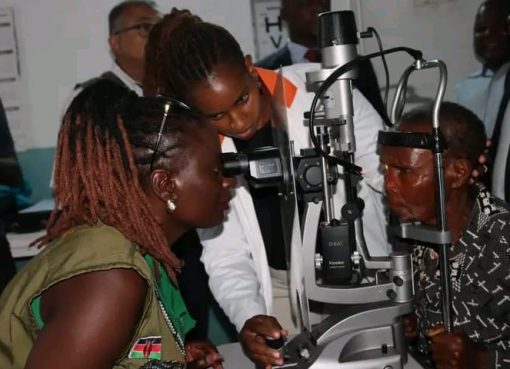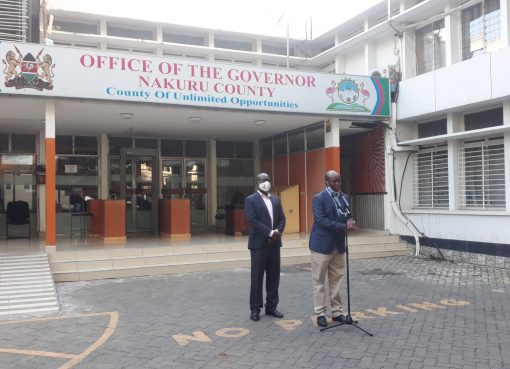The County Government of Nakuru is prioritising continuous training of Community Health Promoters (CHPS) as a tool for universal healthcare to enhance their capacity to deliver primary healthcare services.
County Executive Committee Member for Health Services, Ms. Roselyn Mungai, said the health promoters were an integral part of sound health systems they were putting in place to ensure that residents access affordable and comprehensive health care, ranging from disease prevention, treatment, and rehabilitation.
Ms. Mungai observed that the CHPs form a critical component of healthcare service delivery in the county since they are the first point of contact for patients in the community.
Speaking during a monthly meeting with CHPS, the CECM noted that there exist multiple laws, policies, and guidelines that seek to support Universal Health Care (UHC), adding that the Constitution provides for the right to affordable and accessible health services without discrimination.
“We will work to find resources for Integrated Community Case Management (ICCM) training to enable the health promoters to fully utilise their kits,” Ms. Mungai added.
Official statistics at the MOH indicate that Kenya has a worryingly low doctor-to-patient ratio, with the probability of some citizens never seeing a medic in their lifetime. For every 10,000 people, it is said that there are only 2 doctors and 8 nurses and midwives.
The Community Health Promoters programme was launched last year, after which the government recruited and trained 100,000 CHPs in collaboration with the 47 counties to support the 9,100 community health units (CHUs). The collaboration involves the formation of the recommended 315 primary care networks and conducting a facility census to assess the country’s preparedness for UHC.
Ms. Mungai pointed out that the Kenya 2020-2030 Community Health Policy seeks to empower individuals, families, and communities to attain the highest possible health standards, adding that by taking health services closer to the people, communities will be enabled to identify their health priorities and participate in the planning and delivery of services.
The CECM observed that since the deployment of the CHPs in the communities, the number of referrals to the hospitals had increased due to the fact that through basic tests such as blood pressure and blood sugar, many people with previously undetected ailments have been diagnosed and put on relevant medication.
“For now, we are training CHPs on basic modules of healthcare, including mother and child health, use and distribution of de-wormers, and basic water treatment methods, among others,” she said.
At least 30,000 Kenyans with high blood sugar and 64,000 with blood pressure have, in the last one year been recommended for facility-based healthcare by community health promoters (CHPs), the Health Ministry says.
The latest data by the State Department for Public Health and Professional Standards at the Ministry of Health further shows that over 1.9 million Kenyans have been screened for diabetes, while 1.4 million have been checked for hypertension. The move has helped residents from low-household incomes get a much earlier diagnosis, thereby saving lives.
Ms. Mungai commended the CHPs’ commitment and the important part they play in enhancing health outcomes at the community level and promised that hard-working Community Health Promoters (CHPs) will be recognised and rewarded by the County Government.
She indicated that Governor Susan Kihika’s administration was working on parameters of how to monitor progress and reward health workers who have done well, adding that the County government had recognised that CHPs were key contributors to Universal Health Coverage as they play a crucial role in preventive and promoting improved quality primary healthcare services in the county.
Ms. Mungai explained that the CHPs had undergone extensive training, including technical modules such as integrated community case management, community case management for malaria, TB, household air pollution, and hypertension, in addition to collaborating with local health care facilities and authorities to provide crucial services, education, disease prevention, and support to citizens.
The CECM noted that health promotion was essential and the proactive approach to health could significantly reduce the burden on Kenya’s health care system.
“A healthy nation is key to our social economic development agenda. We will work round the clock to ensure locals get quality health care services,” she said.
While noting that for a long time, the County had focused on curative methods of service delivery, Ms. Mungai observed that the new focus on promotive and preventive health will revamp the healthcare system and help reduce ever-rising healthcare costs.
By Esther Mwangi




